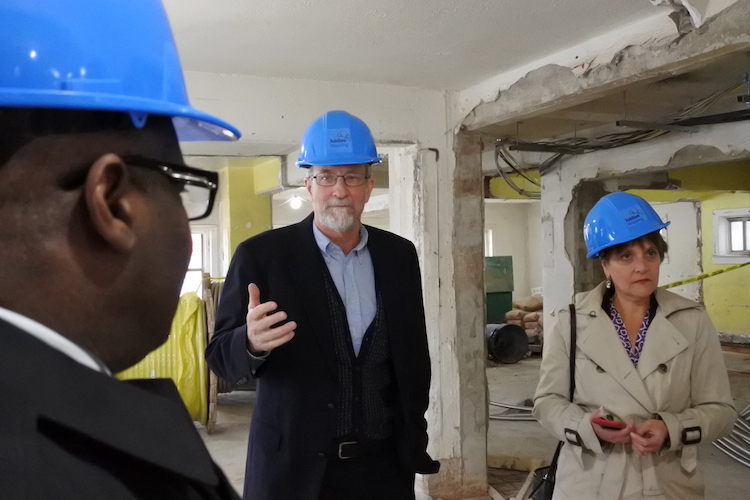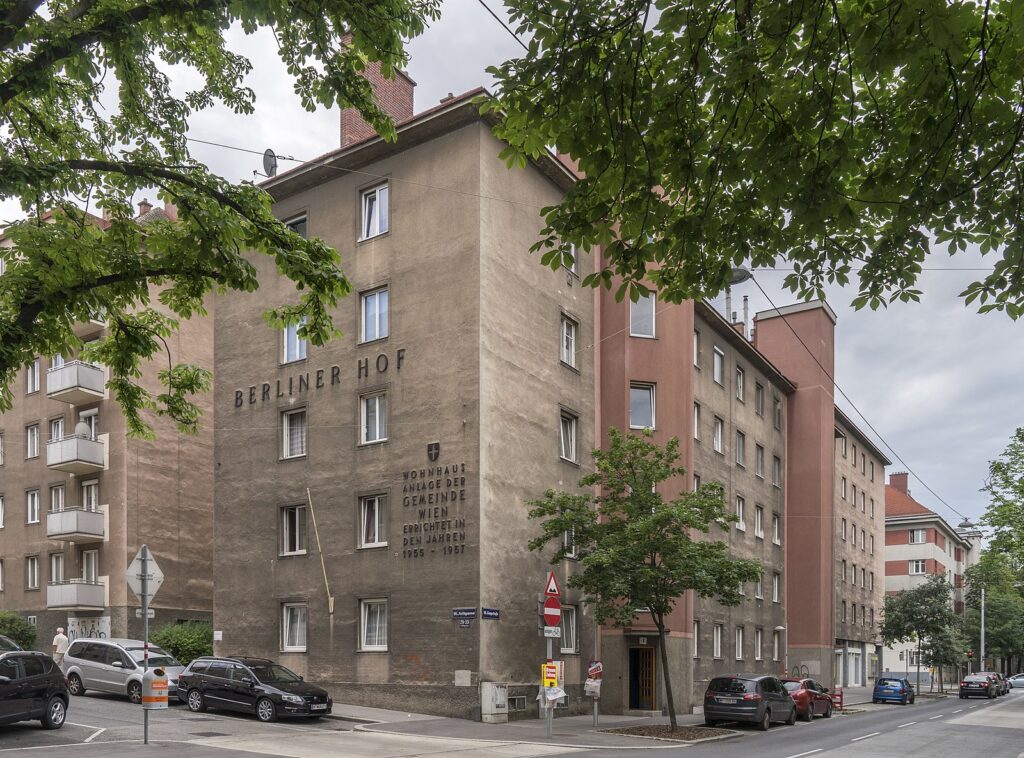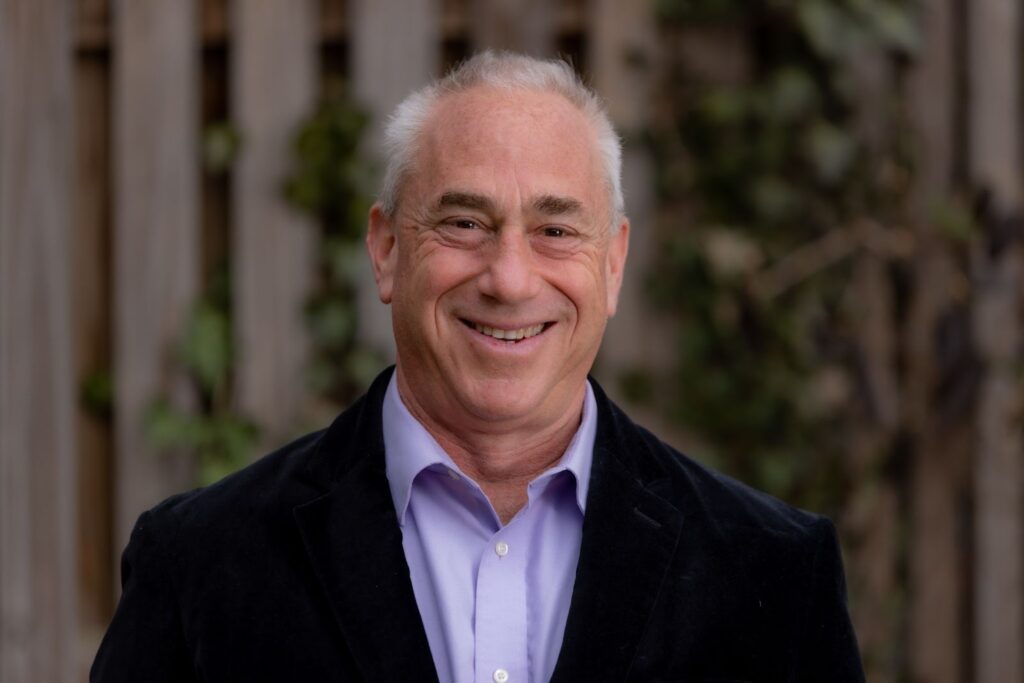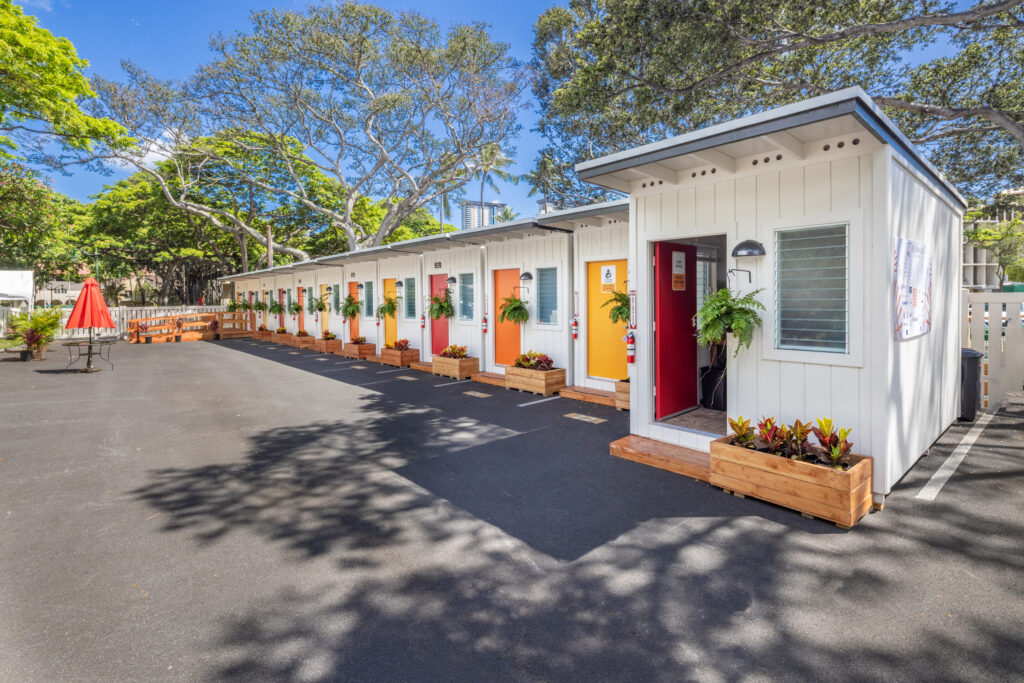Nonprofit developer Jubilee Housing is on track to create a major source of affordable housing in Columbia Heights, a neighborhood that was ranked among the fastest-gentrifying neighborhoods in the country in 2012. Construction is under way on 64 units of affordable housing at the Maycroft Apartment complex, two blocks from the Columbia Heights Metro station. There will also be a variety of nonprofit food and education services operating on the first floor. It is expected to be completed by September of this year.
Fifteen of the units will be for two- and three-person occupancy, and the remaining units will be one-bedrooms and efficiencies. All of the apartments will be reserved for people who earn 60 percent or less of the area median income (AMI), the standard for determining renters’ eligibility for affordable housing, according to Martin Mellett, vice president of strategic initiatives for Jubilee Housing.
What is most unusual is that a majority of units will be reserved for people who earn less than thirty percent of the AMI. The apartments will be for “regular workers who can’t get by in this market,” Mellett said during a hard-hat tour of the property. “There’s a building right next door that’s selling condos for $600,000. That’s the market we’re looking at.”
Myra Peabody Gossens, Jubilee board chair, was quick to differentiate the developer’s concept of affordable housing from the policy definition of the term. “When we talk about the 30 percent AMI, we don’t ever say the phrase ‘affordable housing,’ because most of affordable housing policy at the federal end and at the local level is about 60 percent AMI,” she said. “What we’re doing is different … We’re really trying to keep the lowest of the low-income people in their communities.”
The organization calls this “justice housing,” according to Rebecca Ely, the vice president of institutional advancement. It includes “connecting people to the city’s prosperity through high-quality and attainable homes, with easy access to programs and services, in resource-rich neighborhoods where all residents are valued equally,” she wrote in an email.
To that end, Jubilee Housing will open a family resource center on the first floor of the building, including a Teen Renaissance program to help young people develop leadership skills. Nonprofit organization Martha’s Table will offer early childhood education programs, prepare the meals for their McKenna’s Wagon food truck service, and host fresh food markets. Mellett and Peabody Gossens hope these services will be in place by July 2018.
Ward 1 Councilmember Brianne Nadeau was supportive of the project and said it will provide stability for her constituents. “Unless we preserve and build new affordable housing, the District’s growth will come at the expense of pushing out low-income families and people of color, particularly the communities that have made Ward 1 so vibrant and resilient,” she wrote in a statement. “I fought hard for this project because it will make a real difference to so many families in Ward 1.”
The process of developing the property has been difficult since Jubilee Housing bought the land in 2011, according to Mellett. The tenants association that represented the building’s 15 residents at the time signed their Tenant Opportunity to Purchase rights over to Jubilee Housing, giving them the exclusive right to develop the property. However, in 2015 and 2016, Jubilee Housing faced a challenge from a predatory developer who established an “illegitimate” tenants association and attempted to sign their TOPA rights to a different developer for profit, slowing down Jubilee’s plans in court. Mellett added that all 15 original residents will be able to return to their home and pay a similar affordable rent after the construction.
Joseph’s House, a hospice for homeless men and women with AIDS, partnered with Jubilee to house some of its patients in the Maycroft. Ten clients of Joseph’s House lived there and will return after the construction is finished, according to Ely.
Jubilee Housing is already looking past the Maycroft Apartments for its next development opportunities. On Feb. 15, the organization announced in a press release the creation of a new development committee, a group of volunteers who will analyze future potential projects from a construction and a financial perspective and “do what any developer would do,” according to Mellett. Jubilee Housing Executive Director Jim Knight was quoted in the release saying that “Jubilee hopes to enlarge the community of stakeholders who care about justice housing … to expand justice housing, we need financial resources, and to raise financial resources, we need human resources.”
Peabody Gossens, the Jubilee Board chair, acknowledged that constantly looking ahead is crucial to keep up with the demand for affordable housing in D.C. She cited as an example that the last time Jubilee Housing offered available units, around 400 people lined up around the block and slept on the sidewalk to apply for a chance at one of 27 units.
“When we announce that we’re going to have 35 or 40 units, whatever we end up with, and we’re celebrating that — it’s time to buy another building,” Peabody Gossens said. “It’s time to do more. It’s time to try to stay ahead of this tide.”
Correction (4/6/2018)
This article has been updated to reflect the correct spelling of the name of the chair of Jubilee Housing’s board, Myra Peabody Gossens.








